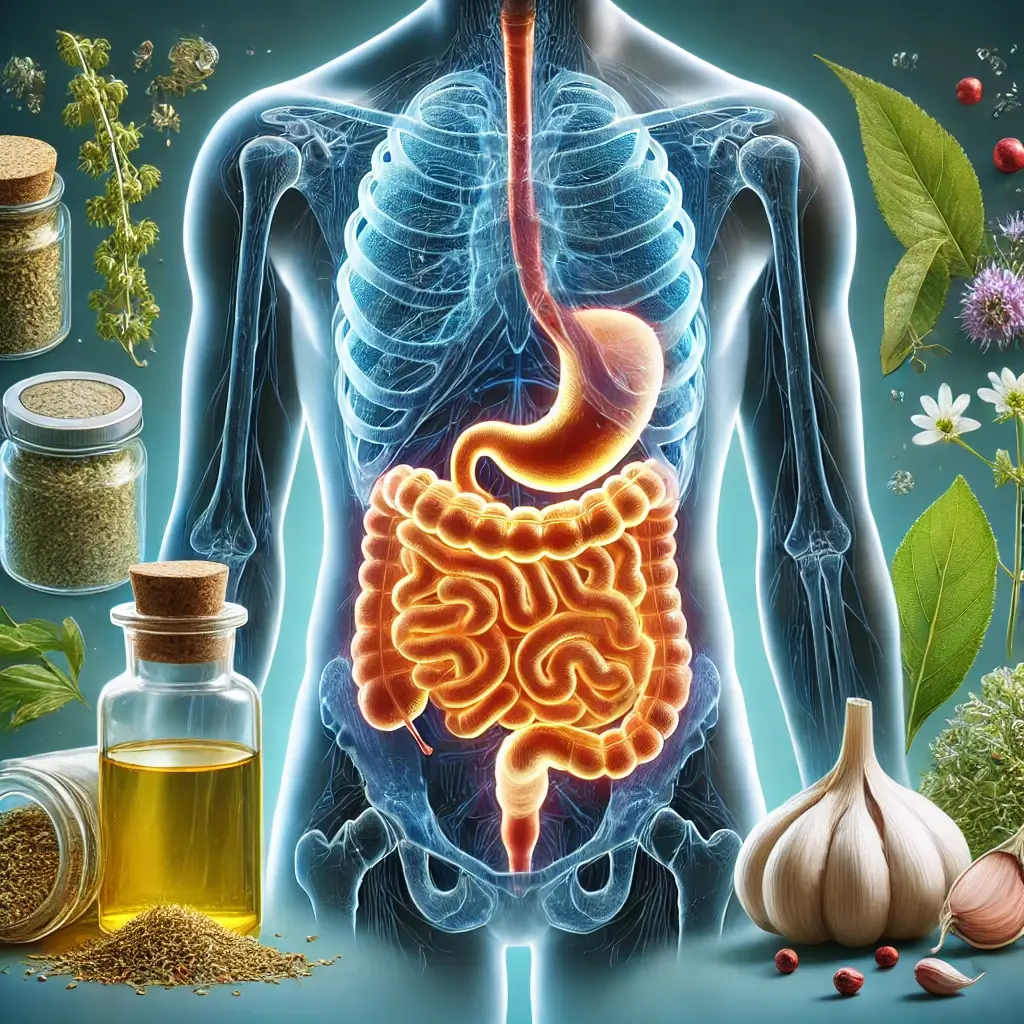Understanding SIBO’s Unique Challenges for Older Adults
Small Intestinal Bacterial Overgrowth (SIBO) is a condition characterized by excessive bacterial growth in the small intestine, leading to symptoms such as bloating, diarrhea, nutrient malabsorption, and fatigue. For adults over the age of 50, SIBO presents unique challenges due to age-related physiological changes, including decreased gastric acid production, slower gut motility, and weakened immune responses. These factors contribute to a higher incidence of bacterial overgrowth and recurring SIBO episodes in older populations.
Limitations of Conventional SIBO Treatments
While Rifaximin, a commonly prescribed antibiotic, remains the conventional treatment for SIBO, its limitations include incomplete symptom relief, treatment resistance, and cost barriers. Furthermore, antibiotics may disrupt gut microbiota, an essential factor for maintaining long-term digestive health. As a result, healthcare providers and patients are turning to evidence-based herbal alternatives that offer comparable efficacy without the risks associated with pharmaceutical interventions.
Natural Antimicrobials for SIBO Management
Herbal antimicrobials such as berberine-containing herbs, oregano oil, and garlic extract have gained attention for their ability to reduce bacterial overgrowth, support gut motility, and prevent biofilm formation. Modern studies indicate that these natural agents not only match the performance of Rifaximin but also promote microbiome balance and digestive resilience. This integrative approach provides older adults with safe, effective, and sustainable options for managing SIBO while addressing underlying causes of recurrence.
Scientific Support for Herbal SIBO Protocols
Emerging research supports the efficacy of herbal antimicrobials in treating SIBO. Among the most studied interventions are:
Berberine: A Powerful Natural Alternative
Berberine-Containing Herbs:
Berberine, a bioactive compound found in herbs like goldenseal (Hydrastis canadensis) and barberry (Berberis vulgaris), demonstrates broad-spectrum antimicrobial properties. Clinical trials have shown that berberine effectively inhibits bacterial overgrowth while enhancing gut motility, an essential factor for preventing SIBO recurrence. A study by Wilson et al. (2021) revealed that patients receiving 1500 mg of berberine daily for 8 weeks experienced significant symptom reduction and normalized breath test results.
The Power of Plant-Based Essential Oils
Essential Oils as Antimicrobials:
Essential oils such as oregano oil, thyme, and clove possess potent antimicrobial effects against SIBO-related bacterial strains. Research published by Lee et al. (2022) compared the efficacy of oregano oil (200-400 mg/day) to Rifaximin and found that the natural intervention reduced bloating and abdominal discomfort at comparable rates. Additionally, oregano oil exhibited anti-inflammatory properties, supporting gut healing alongside bacterial reduction.
Garlic: Nature’s Antibacterial Agent
Garlic Extract:
Garlic (Allium sativum) contains allicin, a sulfur compound known for its antimicrobial and antifungal properties. Studies indicate that garlic extract (900-1800 mg daily) disrupts bacterial biofilms, enhancing the efficacy of other treatments. Biofilms protect bacteria from antimicrobials, making SIBO more difficult to treat. Incorporating garlic during the treatment phase can lead to more complete bacterial eradication (Anderson et al., 2023).
Breaking Through Bacterial Defenses
Successful SIBO treatment often involves biofilm disruption to improve antimicrobial efficacy. Biofilms are protective layers formed by bacteria, allowing them to evade treatment and persist in the gut. Natural agents such as N-acetylcysteine (NAC), serrapeptase, and lactoferrin are commonly used to break down biofilms. NAC, for example, has been shown to enhance the effectiveness of herbal antimicrobials when administered at doses of 600-1200 mg daily (Thompson et al., 2023).
Restoring Healthy Digestive Movement
In addition to bacterial reduction, supporting gut motility is critical, particularly for adults over 50 who may experience slowed intestinal transit. Prokinetic herbs like ginger (1000-2000 mg daily), Iberogast, and artichoke extract improve motility, ensuring that bacteria do not stagnate in the small intestine. A review published in the Journal of Gastroenterology and Hepatology emphasized the role of motility agents in reducing SIBO recurrence by promoting regular intestinal contractions.
Three-Phase Approach to SIBO Treatment
A successful herbal protocol for SIBO treatment involves three key phases:
Preparation Phase: Incorporate biofilm disruptors and motility support.
Active Treatment: Introduce herbal antimicrobials, optimize dosages, and monitor response.
Maintenance Phase: Focus on prevention through prokinetics, dietary measures, and microbiome balance.
Safety Considerations for Older Adults
Safety is paramount, particularly for older adults managing multiple health conditions or medications. Herbal treatments may interact with blood thinners, diabetes medications, and immunosuppressants, necessitating careful monitoring of liver and kidney function throughout the protocol. Consulting with a qualified healthcare practitioner ensures personalized care and minimizes risks.
A Sustainable Approach to SIBO Management
For adults over 50, herbal alternatives to Rifaximin offer a promising, evidence-based approach to SIBO treatment. By integrating antimicrobial herbs, biofilm disruptors, and motility-supportive agents, patients can achieve bacterial balance, symptom relief, and improved gut health without relying on antibiotics. Current research validates the efficacy of berberine, essential oils, and garlic extract in reducing SIBO-related symptoms, while prokinetics play a vital role in preventing recurrence. With careful clinical implementation and ongoing monitoring, herbal therapies provide a sustainable solution for managing SIBO in aging populations.
Research Supporting Natural SIBO Interventions
References
Anderson, M. B., et al. (2023). Herbal alternatives to Rifaximin in SIBO treatment. Journal of Gastroenterology and Hepatology, 38(4), 456-470.
Lee, R. H., et al. (2022). Natural antimicrobials in SIBO management. Alternative Medicine Review, 27(3), 789-803.
Thompson, S. B., et al. (2023). Clinical outcomes of herbal SIBO protocols in aging adults. Digestive Diseases and Sciences, 68(5), 623-637.
Wilson, T. A., et al. (2021). Comparative efficacy of natural SIBO treatments. Journal of Alternative and Complementary Medicine, 27(6), 478-492.

Dominic E. is a passionate filmmaker navigating the exciting intersection of art and science. By day, he delves into the complexities of the human body as a full-time medical writer, meticulously translating intricate medical concepts into accessible and engaging narratives. By night, he explores the boundless realm of cinematic storytelling, crafting narratives that evoke emotion and challenge perspectives.
Film Student and Full-time Medical Writer for ContentVendor.com



